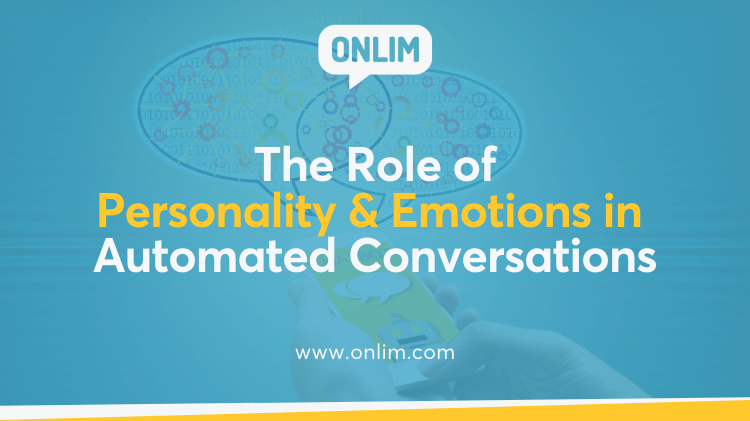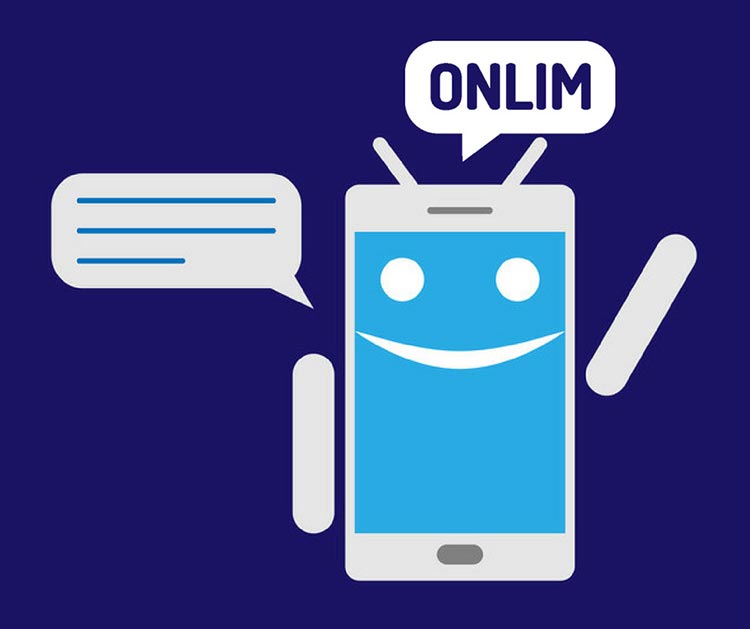The Role of Personality & Emotions in Automated Conversations
With the ongoing advancement of automated conversations, it is becoming more important than ever to emphasize the role of personality and emotions in the development of chatbots. Because just like in human conversations, the individual personality traits have a big impact on making a conversation partner feel understood and validated.
Download our free e-book to learn everything you need to know about chatbots for your business.
Chatbots are unbelievably flexible in their use cases and can deliver quick and automated support at any hour of the day. Yet, they still tend to lack some finesse in dealing with human demands at times. That’s why it’s going to be even more important for chatbots to become more human and personal in the future.
Chatbots that can engage with emotions intelligently will make for better conversations.
Better customer experiences with chatbot personality
The personality of a chatbot influences the user experience enormously and is a decisive factor in how the interaction is perceived by its human counterpart. A problem of most chatbots is that they are often perceived as unintelligent and lacking conversational maturity. Giving chatbots a dedicated personality has shown a positive impact on automated conversations. Chatbots that are built according to a personality framework positively affect customer experiences.
It’s going to be of utmost importance to teach chatbots human personality traits and conversational skills. Enabling them to advance beyond machine-like user experiences only. The development of personalities for chatbots appears to be a very promising factor in this endeavour.
Emotions and personality in automated conversations
Emotional Intelligence is the capacity to model one’s behaviour through emotional reflection to a specific situation. This intelligence is especially important in communication and studies have shown that personality traits play an important role in the interaction with automated customer interfaces. Most importantly an open engagement with emotions has shown to be beneficial for customer satisfaction.
Additionally, users find a consistent chatbot personality that doesn’t randomly change its tone or behaviour to be important. That’s why Microsoft conducted various interviews with personal assistants of celebrities to build a convincing and consistent personality profile for its voice assistant Cortana.
Development of a chatbot personality
User connection through Personas
It is generally advisable to have the users in mind the chatbot will be interacting with while developing its personality. To understand the needs of future customers best, lots of data is required. A helpful approach to make sense of this data is to create user personas. These personas can represent an average user group. Helping designers to keep in mind whom the chatbot is developed for at all times.
Social roles
An interesting approach beyond utilizing personas is embedding the chatbot’s use-case in a social role or profile (e.g. as a personal assistant, concierge, or shopping guide). This helps with a more dynamic exchange because the roles are clearly defined, and the customer knows what to expect. The social role of a chatbot can be described by its job, tasks and the expected actions of someone in his position. For example, a customer service chatbot of Lufthansa can act in a very different social role compared to a marketing chatbot from Coca-Cola that is helping people find the hottest party locations.
Brand voice
With a specific Tone-of-Voice brands can distinguish themselves from other competitors and create a consistent brand image. In case of unusual deviations from this original tone, customers can get irritated or confused. So, it is best to have this in mind while creating a chatbot personality.
Depending on which language style is chosen a specific brand identity can be supported which can lead to a stronger emotional bond between customers and the brands they interact with.
At Onlim we help you take out the guesswork when you enter this interesting new space. We are more than happy to guide and assist you in developing individual chatbot and voice assistant solutions for your specific needs. Click here to learn more about our offers.
What are Large Language Models (LLMs)?
March 18th, 2024|
What are chatbots and how do they work?
November 23rd, 2023|
The AI Act and its impact on the use of chatbots
October 27th, 2023|



